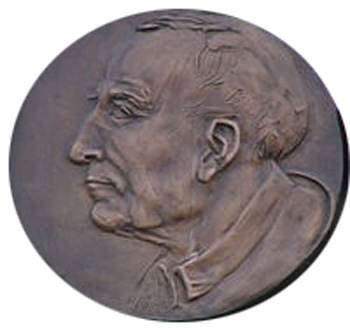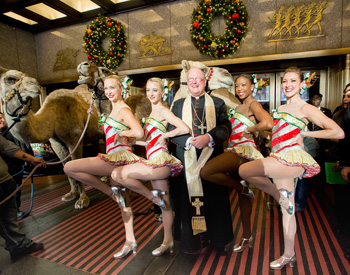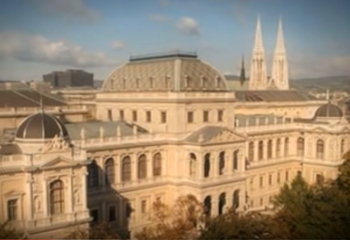About the Church
 |
 |
 |
 |
 |
 |
 |
How to Preserve Our Faith in the
Present Crisis in the Church?
I was recently posed these questions: “When you were commenting on the crisis in the times of St. Louis Grignion de Montfort (1673-1716), you mentioned that Catholics had two means to orient themselves in face of divergent doctrines: 1. The comparison of these doctrines with the truths always taught by the Church; 2.The discernment of the spirits.
“Without denying the possibility of utilizing both means, which of these two ways do you consider the most convenient for today's Catholics to use to orient themselves in the face of the post-conciliar crisis? Then, could you explain better what is the discernment of spirits and its limitations? I ask in regard to the charismatics inside the Church.”
Here we have the program for a whole seminar course... I will only make some brief remarks on this topic. But I am prepared to face it. Non recuso laborem (I don’t decline the task). Let us go forward, then.
 So, the question is: "Without denying the possibility of interaction between these two means – that is, utilizing both a comparison of doctrine and a discernment of spirits," which of these means is the best for today's Catholic to orientate himself in the post-conciliar crisis? Then, what is the discernment of spirits?
So, the question is: "Without denying the possibility of interaction between these two means – that is, utilizing both a comparison of doctrine and a discernment of spirits," which of these means is the best for today's Catholic to orientate himself in the post-conciliar crisis? Then, what is the discernment of spirits?
It will be easier for me to say a quick word about discernment of spirits.
Discernment of spirits is an action of grace upon man whereby the man is better able to perceive what is moved by the good spirit and what is moved by the evil spirit.
The soul has an instinct for a supernatural action that is good, that speaks of virtue, holiness and the true Faith; it perceives this and is led by it. On the contrary, when there is something evil, the soul has a kind of instinct, also given by grace, that makes it perceive there is something bad there and, for this reason, it sets it aside. Our everyday experience demonstrates this in many ways.
I recall a very beautiful fact from the life of a great saint, whose name is unfortunately rarely heard in Brazil. Perhaps in the U.S., Europe or Spanish America there is more said about him: He is St. Clement Maria Hofbauer (1751-1830), the great Apostle of the Germanic world in the 19th century.
He was from a very modest and very poor family in Moravia. He found work delivering bread in a bakery in Vienna. In his spare time he would attend theology classes at Vienna University. This dispatcher of bread who had a passion for theology is a small masterpiece of grace.
 Those in charge of the college allowed this lad to enter the classes, a young man without importance. One day he was assisting at a lecture of a famous Viennese professor of theology. As you know, Vienna was one of the great capitals of European culture, arts and sciences, known for its refinement and fine manners, etc.
Those in charge of the college allowed this lad to enter the classes, a young man without importance. One day he was assisting at a lecture of a famous Viennese professor of theology. As you know, Vienna was one of the great capitals of European culture, arts and sciences, known for its refinement and fine manners, etc.
So, while the young man was listening one day to the lecture of this famous professor, the professor said something wrong and he interrupted him, saying: “Permit me to object, Dr. X."
The professor: "What is it"?
The boy: "I disagree with this point, for these reasons..." And he went on to set out his argument.
There was general indignation in the room because the baker - less than that, a mere delivery boy -dared to disagree with the great "Dr. X."
The youth did not become perturbed. He held firm to his position and, some time afterwards, that mistake of the master theologian was condemned by the Church. St. Clement, the future St. Clement Maria Hofbauer, had realized that there was something wrong. It was a work of his intelligence, but it was also a work of discernment of spirits. He saw in that teacher something bad, something wrong, something that made St. Clement feel the heresy in the heretic.
Sometimes one can perceive the bad spirit of a man even by his back, by the way he catches an umbrella.
How to defend one’s faith?
It is evident that the faith is being severely tested in the crisis of the Church. How can a person defend his faith in this trial?
First, by traditional means. He must study the official documents of the Church prior to the crisis; he must give these documents his full adhesion in the measure that, according to the real teaching of the Church, this adherence must be given; and he must make the comparison with the present teaching and past sound teaching, as my amiable questioner notes.
 Second, he must always pay attention to that instinct that warns him when something is wrong.
Second, he must always pay attention to that instinct that warns him when something is wrong.
Third, he must seek out the priests and Bishops who are faithful to traditional teaching. He must look for them and then be formed by them. He may also appeal, as a mere echo of the teaching Church rather than an actual element of it, to lay persons whose faith he knows is sound and whom he trusts to give good advice.
Fourth, finally, he must pray and ask Our Lady to protect him.
These are the points I recommend.
One thing, however, is certain: The temptation will never be greater than the grace the person receives. And if the person prevaricates, he is indeed to blame, because God does not abandon anyone to confusion. The truth is this. Let us take heart, then, and not quake and shake. The reality is this.
Look at the moral errors
There is one criterion that is very certain: When we see that a particular current of thought is favoring things that are objectionable with regard to virtue, it is a symptom that it is very unlikely that its doctrine is good from the theological standpoint.
 If there is a religious current that calls itself Catholic, and I lack the means on my own to form a secure judgment based on A, B, C, etc., but I realize that there is a moral concession being made by this current – e.g. fashions opposed to Christian virtue, consent to violation of precepts laid down by the Church – then I should avoid it.
If there is a religious current that calls itself Catholic, and I lack the means on my own to form a secure judgment based on A, B, C, etc., but I realize that there is a moral concession being made by this current – e.g. fashions opposed to Christian virtue, consent to violation of precepts laid down by the Church – then I should avoid it.
So, for example, there is a milieu where skirts are short, clothing is indecent, one that favors going to beaches where the customs are not good, where the ambience is one of relaxing all the rules, mitigating all duties, abolishing all precepts, avoiding every sacrifice; then, I have plenty of reasons to suspect that their entire theology is not worth two cents.
Who errs in morals should not be trusted because Morals is based on Revelation. If they err in the matter of Morals, then they also will err interpreting Revelation on moral matters, and it is easy for them to error in other matters like the Holy Trinity, the Mass or any other dogmatic thing. I don't linger in such an ambience; it is not a milieu for me.

“Without denying the possibility of utilizing both means, which of these two ways do you consider the most convenient for today's Catholics to use to orient themselves in the face of the post-conciliar crisis? Then, could you explain better what is the discernment of spirits and its limitations? I ask in regard to the charismatics inside the Church.”
Here we have the program for a whole seminar course... I will only make some brief remarks on this topic. But I am prepared to face it. Non recuso laborem (I don’t decline the task). Let us go forward, then.

True Catholics have an instinct that shows them when someone is inspired by a good or bad spirit
It will be easier for me to say a quick word about discernment of spirits.
Discernment of spirits is an action of grace upon man whereby the man is better able to perceive what is moved by the good spirit and what is moved by the evil spirit.
The soul has an instinct for a supernatural action that is good, that speaks of virtue, holiness and the true Faith; it perceives this and is led by it. On the contrary, when there is something evil, the soul has a kind of instinct, also given by grace, that makes it perceive there is something bad there and, for this reason, it sets it aside. Our everyday experience demonstrates this in many ways.
I recall a very beautiful fact from the life of a great saint, whose name is unfortunately rarely heard in Brazil. Perhaps in the U.S., Europe or Spanish America there is more said about him: He is St. Clement Maria Hofbauer (1751-1830), the great Apostle of the Germanic world in the 19th century.
He was from a very modest and very poor family in Moravia. He found work delivering bread in a bakery in Vienna. In his spare time he would attend theology classes at Vienna University. This dispatcher of bread who had a passion for theology is a small masterpiece of grace.

Clement Hofbauer, above, dared to object to a professor at the prestigious Vienna University, below

So, while the young man was listening one day to the lecture of this famous professor, the professor said something wrong and he interrupted him, saying: “Permit me to object, Dr. X."
The professor: "What is it"?
The boy: "I disagree with this point, for these reasons..." And he went on to set out his argument.
There was general indignation in the room because the baker - less than that, a mere delivery boy -dared to disagree with the great "Dr. X."
The youth did not become perturbed. He held firm to his position and, some time afterwards, that mistake of the master theologian was condemned by the Church. St. Clement, the future St. Clement Maria Hofbauer, had realized that there was something wrong. It was a work of his intelligence, but it was also a work of discernment of spirits. He saw in that teacher something bad, something wrong, something that made St. Clement feel the heresy in the heretic.
Sometimes one can perceive the bad spirit of a man even by his back, by the way he catches an umbrella.
How to defend one’s faith?
It is evident that the faith is being severely tested in the crisis of the Church. How can a person defend his faith in this trial?
First, by traditional means. He must study the official documents of the Church prior to the crisis; he must give these documents his full adhesion in the measure that, according to the real teaching of the Church, this adherence must be given; and he must make the comparison with the present teaching and past sound teaching, as my amiable questioner notes.

Seek out the traditional sound doctrine
Third, he must seek out the priests and Bishops who are faithful to traditional teaching. He must look for them and then be formed by them. He may also appeal, as a mere echo of the teaching Church rather than an actual element of it, to lay persons whose faith he knows is sound and whom he trusts to give good advice.
Fourth, finally, he must pray and ask Our Lady to protect him.
These are the points I recommend.
One thing, however, is certain: The temptation will never be greater than the grace the person receives. And if the person prevaricates, he is indeed to blame, because God does not abandon anyone to confusion. The truth is this. Let us take heart, then, and not quake and shake. The reality is this.
Look at the moral errors
There is one criterion that is very certain: When we see that a particular current of thought is favoring things that are objectionable with regard to virtue, it is a symptom that it is very unlikely that its doctrine is good from the theological standpoint.

Card. Dolan poses with immodest dressed women,
a sign of bad doctrine
So, for example, there is a milieu where skirts are short, clothing is indecent, one that favors going to beaches where the customs are not good, where the ambience is one of relaxing all the rules, mitigating all duties, abolishing all precepts, avoiding every sacrifice; then, I have plenty of reasons to suspect that their entire theology is not worth two cents.
Who errs in morals should not be trusted because Morals is based on Revelation. If they err in the matter of Morals, then they also will err interpreting Revelation on moral matters, and it is easy for them to error in other matters like the Holy Trinity, the Mass or any other dogmatic thing. I don't linger in such an ambience; it is not a milieu for me.

Conference for Supporters, June 22, 1984
Posted on December 13, 2019
Posted on December 13, 2019














